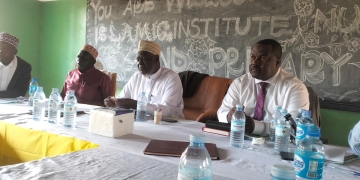
KAMPALA, Uganda — Benon Kabale, a Ugandan disability rights advocate, has been awarded the prestigious 2024 Human Rights Watch Marca Bristo Fellowship for Courageous Leadership in Disability Rights.
Kabale’s work has focused on promoting the rights and dignity of people with mental health conditions, who often face stigma and discrimination in Uganda.
“Benon Kabale has shown incredible resilience in advancing rights in mental health, guided by his experiences of having his rights violated in a mental health setting,” said Elizabeth Kamundia, disability rights director at Human Rights Watch.
Kabale’s personal experience of being secluded and restrained in a mental health hospital has fueled his determination to seek justice and advocate for the rights of others who have faced similar challenges.
In 2018, Kabale founded the Mental Health Recovery Initiative, a non-profit organization that aims to raise awareness about human rights in mental health and promote respect for the autonomy of people with psychosocial disabilities.
Kabale’s work has already had an impact in Uganda, where he has advocated for policy changes to promote the rights of people with mental health conditions.
In 2015, Kabale sued the Ugandan government for violating his rights during his time in the mental health hospital. The case is ongoing, but it has brought attention to the issue of mental health rights in Uganda.
The Marca Bristo Fellowship was established to honor the disability rights icon Marca Bristo, who played a key role in shaping Human Rights Watch’s disability rights strategy.
As part of his fellowship, Kabale will receive training in research, advocacy, communications, and fundraising from Human Rights Watch colleagues.
“Benon Kabale embodies the passion and purpose needed to advance disability rights and mental health care reform globally,” said Karen Tamley, president and CEO at Access Living.
Kabale’s work has been recognized internationally, and he has spoken at conferences and events around the world.
The Ugandan government has taken steps to improve mental health care in the country, but more needs to be done to address the stigma and discrimination faced by people with mental health conditions.
Kabale’s work is an important step towards promoting the rights and dignity of people with mental health conditions in Uganda.










